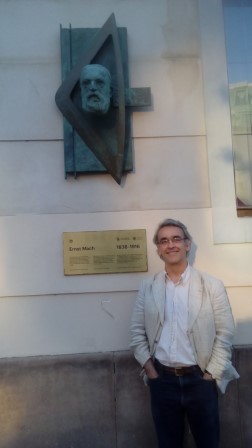CFE LECTURE NUMBER 5
Guido Bacciagaluppi (Descartes Centre for the History and Philosophy of the Sciences and the Humanities, Utrecht)
Hilary Putnam famously claimed that 'quantum logic is the true logic', and that we have empirical reasons for preferring quantum logic to classical logic, so that logic is in fact empirical, because the shift to quantum logic solves the puzzles of quantum mechanics. This talk will not defend these strong claims; indeed, the last of these claims is well-known to be wrong. However, it will defend Putnam against the charge of 'logical schizophrenia', i.e. it will argue that the claim that 'quantum logic is the true logic' is compatible with classical reasoning being admissible in familiar cases (or in Putnam's words, that the classical connectives are the quantum logical connectives 'in disguise'), including the case of reasoning about which logic may be 'true'. Indeed, at least as long as one identifies 'quantum logic' with well-behaved non-distributive logics such as orthologic or orthomodular logic, then the case of quantum logic is perfectly analogous to that of intuitionist logic or paraconsistent logic, where classical logic is recovered when these logics are applied, respectively, to reasoning within finite or consistent domains. Classical reasoning is not logically valid, but admissible because of the special meaning of the propositions to which it is applied.

